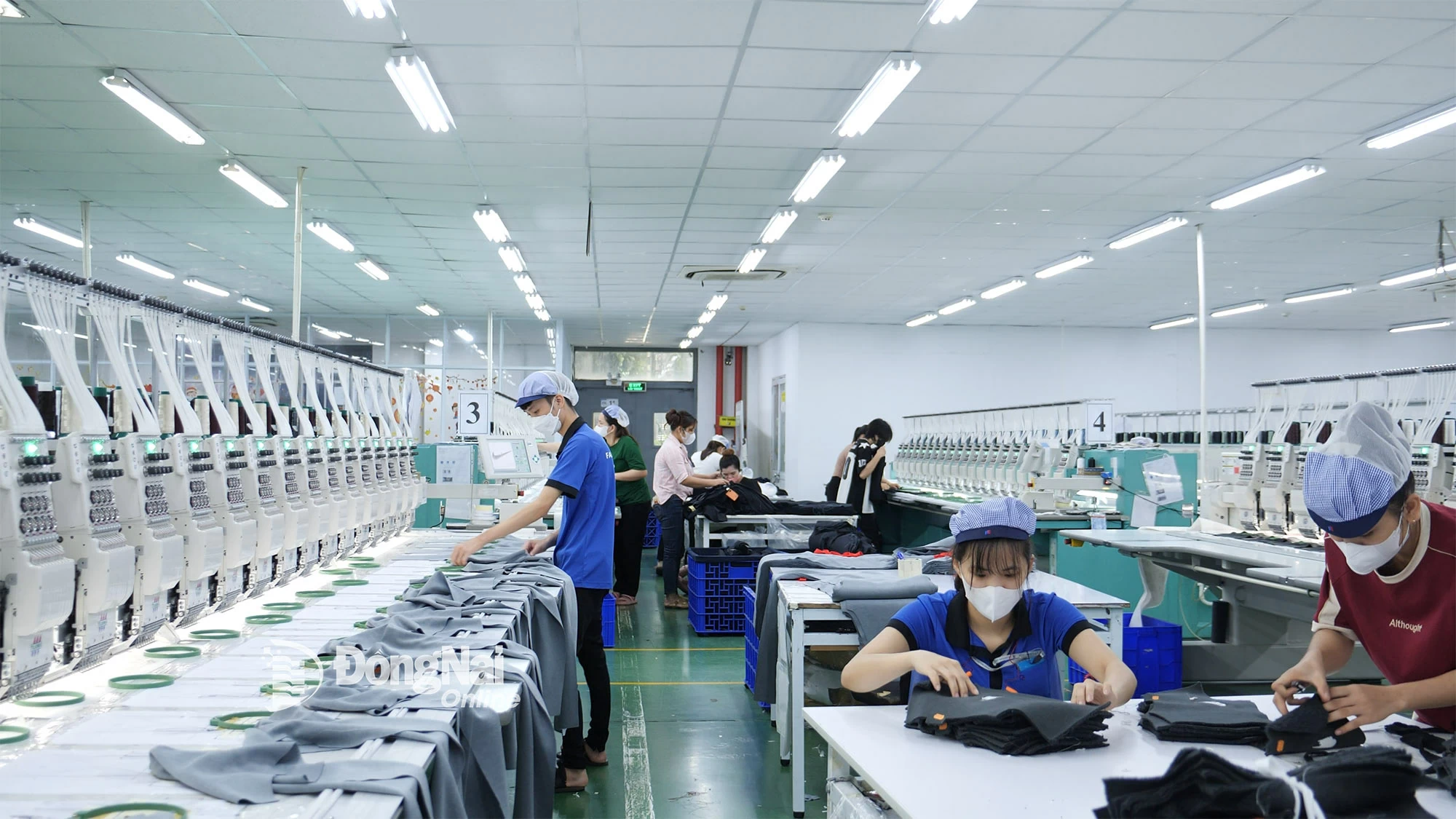 |
| Production activities of New Apparel Far Eastern Company Limited (Vietnam), Bac Dong Phu Industrial Park (Dong Phu Commune, Dong Nai Province). Photo: HIEN LUONG |
This is also a large reduction compared to the 46% level before the bilateral negotiations. In this tariff schedule, the items threatened with high tariffs include: coffee, clothing, rice, cocoa and electronics - essential and popular products for the American people; however, these are not the main groups of goods that our country exports to the United States.
Impacts on Vietnam's economy
The US imposition of a 20% tariff on imported goods from Vietnam will have significant negative impacts on the Vietnamese economy, especially key export industries such as textiles, footwear, electronics, seafood, wooden furniture, etc. These impacts may include:
Reduced competitiveness: The 20% tariff will increase the “price” of Vietnamese exports to the US market, making them less competitive compared to goods from other countries.
Decreased export turnover: When prices increase and competitiveness decreases, the amount of goods exported to the United States will decrease sharply, directly affecting the revenue and profits of exporting enterprises.
Supply chain shifts: US businesses may seek alternative “sources” from countries that are not subject to tariffs, leading to supply chain shifts that cause long-term damage to Vietnam.
Reduced demand for jobs: A decline in production and exports can lead to layoffs, causing unemployment and social burdens.
However, both the Government and enterprises need to have policies to respond to this tax level. According to the 2025 Business Confidence Report conducted by the Private Economic Development Research Board (Board IV - advising the Prime Minister ) in June, many Vietnamese enterprises have been planning to adapt to US tariffs, in which the group with export activities prioritizes finding "new markets". Accordingly, the fact that business confidence has only decreased slightly, not too much, is an important "bright spot" coming from the positive impacts of domestic reforms, especially the "four pillars" of recent breakthrough decisions on improving the business environment.
According to experts, by 2025, Vietnam aims to increase exports by about 12% and reach about 450 billion USD. Our country has signed 17 free trade agreements (FTAs) with more than 60 countries and territories, along with about 70 bilateral cooperation mechanisms - this is considered an important advantage to help Vietnamese enterprises expand their markets, reducing dependence on a single partner (such as the United States or China...). In addition, the US market only accounts for about 13% of total global imports, meaning that Vietnamese enterprises still have a lot of room, equivalent to 87% of the world market, to exploit and diversify export markets.
The survey results show positive signals from businesses in responding to the impact of US tariff policies. Specifically, 29.7% of businesses chose to “find new markets” to reduce dependence on this market; 20.5% of businesses plan to “increase localization of production chains” and 19.6% of businesses said “find input materials from trading partners other than China”…
Need short and long term solutions
In this context, Vietnam needs a comprehensive response strategy, including both short-term and long-term solutions. Based on the analysis of many experts, we believe that Vietnam's response policy should focus on the following contents:
Vietnam needs to proactively negotiate with the United States to minimize the impact of tariff policies. Negotiations could focus on clarifying issues related to rules of origin, anti-tariff measures and other non-tariff measures.
Vietnam should use forums such as the World Trade Organization (WTO) to raise concerns about unreasonable tax policies and seek support from other trading partners.
Along with that, the government can consider support policies such as reducing corporate income tax, extending tax payment time, reducing land use fees, land rent; or refunding VAT faster to reduce the financial burden for export enterprises.
The State Bank can apply preferential credit policies and low-interest loans to help businesses maintain production, digital transformation, green transformation, and find new markets.
Functional sectors need to support businesses in finding and expanding to other potential new markets such as: Europe, Japan, Korea, the Middle East, ASEAN countries... Strengthening trade promotion through organizing international fairs and exhibitions, connecting Vietnamese businesses with potential importers. Supporting businesses in improving the quality and added value of products, shifting from exporting "raw goods" to "deeply processed" goods with higher technology.
Along with that, continue to cut administrative procedures, create more favorable conditions for businesses, especially small and medium enterprises. Increase investment in education, training high-quality human resources, promote research and development (R&D) to improve the competitiveness of the economy. Gradually build strong supporting industries, processing and manufacturing industries to strengthen internal strength.
 |
| Cashew processing activities at Quan Dat Production, Trade and Service Company Limited, Phuoc Binh Ward, Dong Nai Province. Photo: XUAN TUC |
In short, in the context of the US imposing a 20% tax, Vietnam's response policy needs to be flexible, decisive and comprehensive. Solutions need to combine diplomatic negotiations and direct support for businesses to transform. If only focusing on one aspect, the effectiveness will not be high. In the immediate future, the Government needs an "emergency support package" including tax reduction measures, tax deferrals and special credit support for businesses directly affected. In the long term, Vietnam needs to accelerate the process of diversifying export markets, not just focusing on the US. At the same time, it is necessary to focus on improving product value and national competitiveness. This requires close coordination between ministries, sectors, businesses and the whole society.
Dr. Nguyen Van Dien
(Head of the Department of Marxist-Leninist Political Economy, Regional Political Academy II)
Source: https://baodongnai.com.vn/tin-moi/202508/day-nhanh-da-dang-hoa-thi-truong-xuat-khau-1b82749/



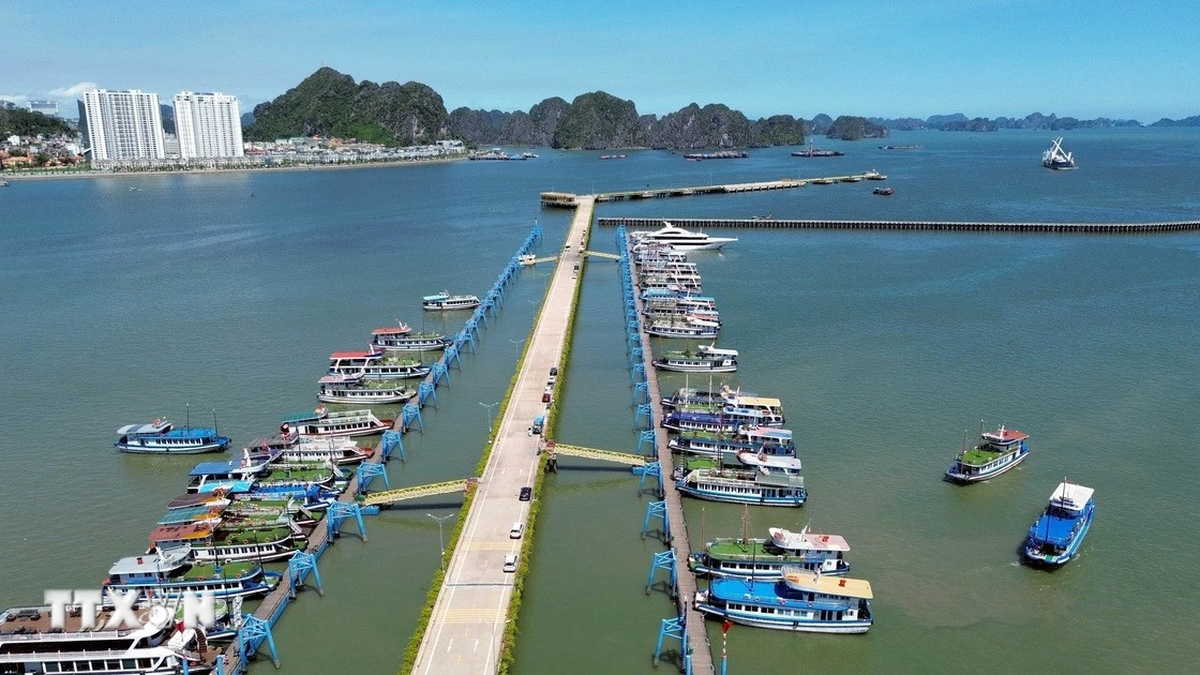



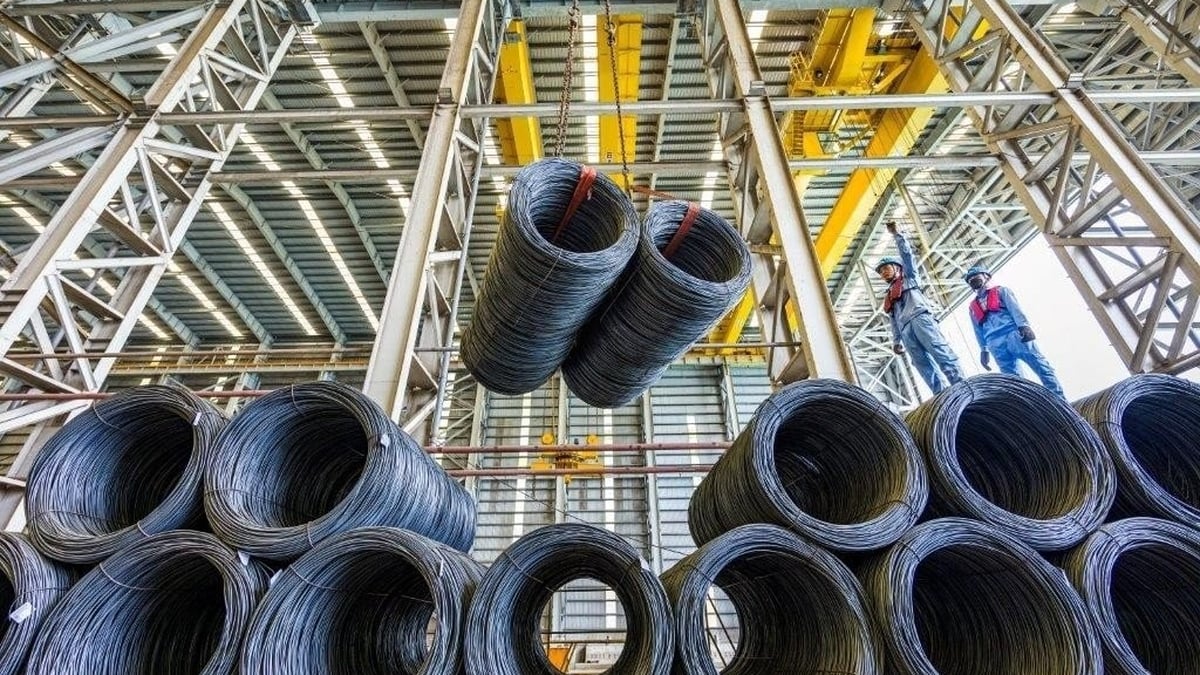


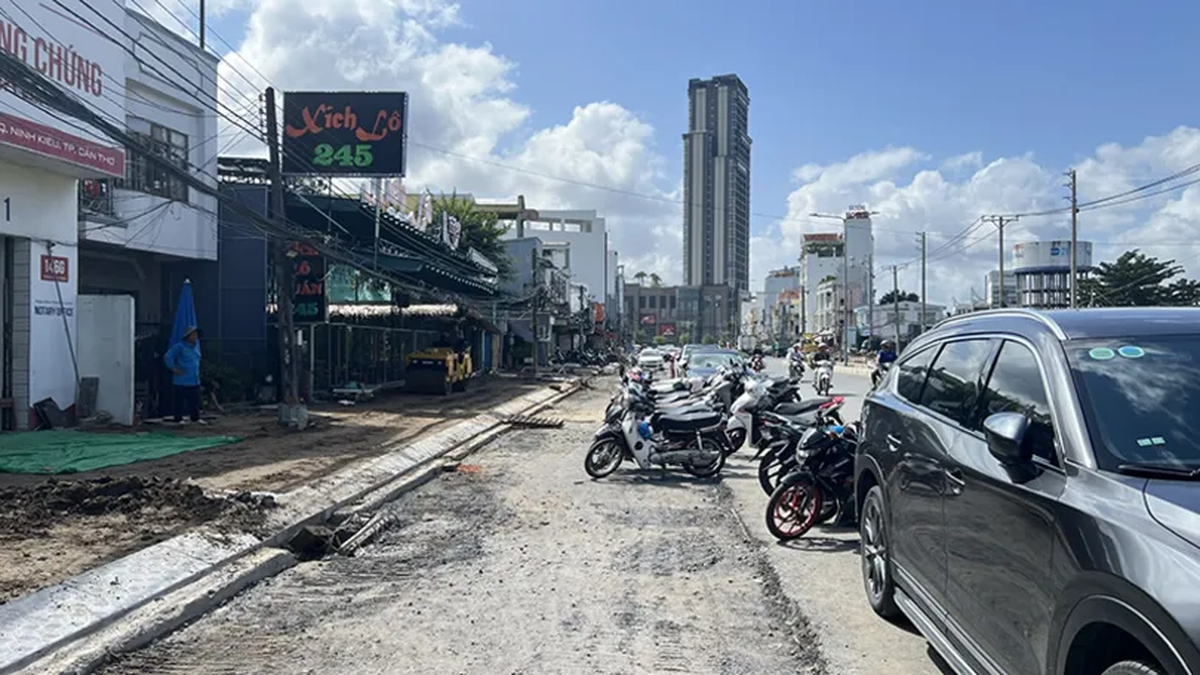











![[Photo] Nghe An: Provincial Road 543D seriously eroded due to floods](https://vphoto.vietnam.vn/thumb/1200x675/vietnam/resource/IMAGE/2025/8/5/5759d3837c26428799f6d929fa274493)







![[Photo] Discover the "wonder" under the sea of Gia Lai](https://vphoto.vietnam.vn/thumb/1200x675/vietnam/resource/IMAGE/2025/8/6/befd4a58bb1245419e86ebe353525f97)

































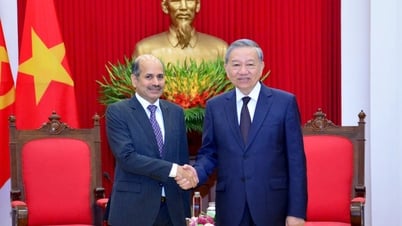







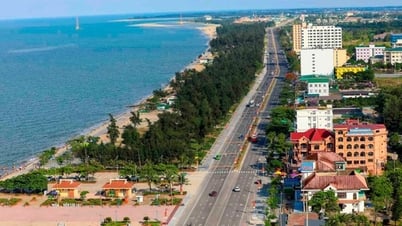





















Comment (0)